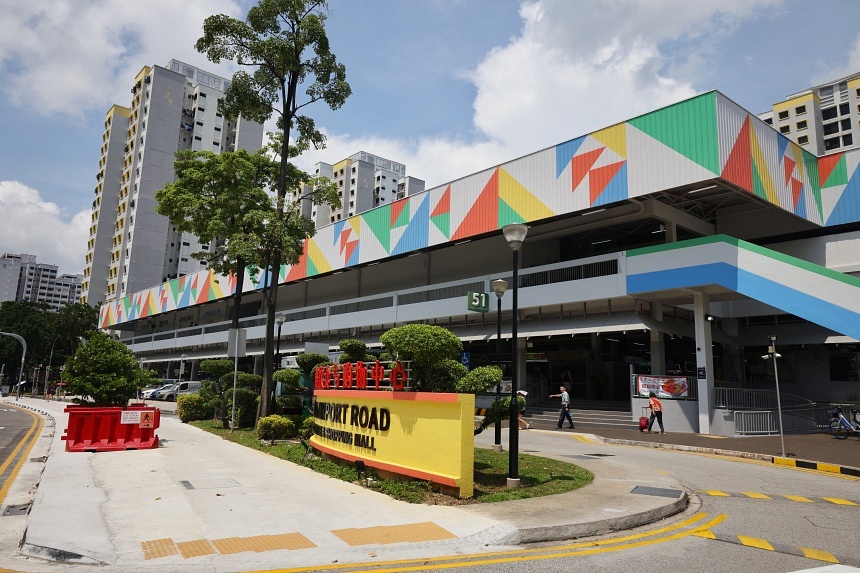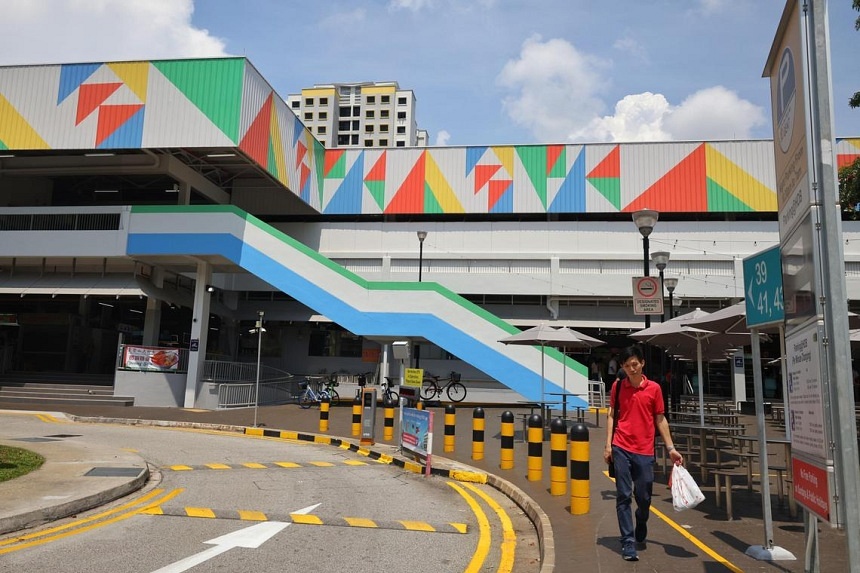Questions to be answered in the Allianz-Income saga
The deal between Allianz and Income Insurance was called off by the Singapore Government. ST PHOTO: ARIFFIN JAMAR
Angela Tan and
Kang Wan Chern
Oct 18, 2024
SINGAPORE - A plan for German insurer Allianz to buy a majority stake in Singapore’s Income Insurance went awry when a key piece of information belatedly came to light.
Allianz’s plan to return $1.85 billion in cash to shareholders within three years after the transaction in a capital reduction exercise proved to be a sticking point, prompting the Government to urgently pass new laws on Oct 16 to halt the deal.
Had the planned deal gone through, Allianz would have taken a stake of least 51 per cent in Income. NTUC Enterprise would have seen its stake in Income shaved from 72.8 per cent to between 21.8 per cent and 49 per cent, depending on how minority shareholders tender their shares.
The changes to the Insurance Act allow the minister in charge of the Monetary Authority of Singapore to withhold approval in cases that involve an insurer that is a cooperative or is linked to one.
Income used to be a cooperative before it changed its legal structure to a company in 2022, and parent NTUC Enterprise is a cooperative.
NTUC Enterprise, in turn, is set up by the National Trades Union Congress (NTUC), the Singapore Labour Foundation and their affiliated unions.
In a four-hour debate on Oct 16, MPs from both the ruling and opposition parties – as well as Nominated MPs – raised several points related to Income and NTUC entities.
Industry experts who spoke to The Straits Times also questioned the role of those involved in the deal.
ST examines the issues and some of the questions that remain unanswered.
Communication about the capital reduction plan
NTUC deputy secretary-general Desmond Tan said on Oct 16 that the labour movement’s central committee did not know of the insurers’ plan to return $1.85 billion to shareholders before it was made known in Parliament on Oct 14.
He was responding to questions posed by backbenchers including Progress Singapore Party’s Non-Constituency MP Leong Mun Wai and Nominated MP Raj Joshua Thomas.
Mr Leong had asked about when NTUC’s leaders were briefed on the offer. “If the NTUC central committee did not know the full details, then why did NE (NTUC Enterprise) and Income not brief them on the full details of the transaction?”
Mr Thomas pointed out that NTUC’s secretary-general Ng Chee Meng and president K. Thanaletchimi had issued a statement on Aug 5 that Income can continue to fulfil its social mission only if it has access to additional resources and the ability to scale.
“Did Income brief the NTUC leadership of the proposed initiative to reduce share capital?” he asked.
Mr Tan said that NTUC is a major shareholder of NTUC Enterprise and does not get involved in day-to-day operations, with business decisions delegated to the board of NTUC Enterprise.
In a nod to the questions that MPs posed to NTUC, Income and NTUC Enterprise during the debate, he said: “I will take these comments and questions back... to the relevant entities, so they can find a suitable occasion to address them.”
Singapore Management University’s Associate Professor Eugene Tan told ST that “it boggles the mind that NTUC’s central committee did not know of the capital reduction”.
He noted that NTUC’s Mr Ng also sits on NTUC Enterprise’s board.
“Serious questions must be asked on why this vital part of the proposed deal was not prominently surfaced by NTUC Enterprise to Income’s board and shareholders, as well as the authorities,” Prof Tan said.
Professor Lawrence Loh, director of NUS Business School’s Centre for Governance and Sustainability, added that the Government could also consider improving its regulatory coordination.
Accountability and leadership
Questions were also raised about how those involved in the decision-making process might be held accountable for how the proposed deal did not match up to earlier assurances made by Income.
During Income’s corporatisation in 2022, it had obtained an exemption from the Ministry of Culture, Community and Youth (MCCY), which oversees the governance of co-ops, to carry over a surplus of $2 billion to the new entity.
Then, Income also told MCCY that it was aiming to build up capital resources and enhance its financial strength.
Mr Thomas asked in Parliament if the Government would be taking steps to ascertain how Income could “negotiate, agree and attempt” to execute a deal with Allianz that was the “opposite” of Income’s representations to MCCY.
He noted that the chairman and chief executive of Income at the time of corporatisation and announcement of the proposed deal with Allianz were the same people.
“How involved were they and the senior management of Income in, on the one hand, making representations to MCCY, and, on the other, arranging the deal with Allianz? Did they not see the contradictions?” Mr Thomas said.
Mr Leong also outlined concerns in Parliament over what NTUC leaders had represented to the public about the deal, when there appeared to be a lack of safeguards on the ability of Income to carry out its social mission.
“The leaders of NTUC, NE and Income owe the public a more substantial explanation on this,” he said.
Prof Tan said that a thorough explanation of how things went wrong is warranted. “Otherwise, the next proposed merger or acquisition is going to have stakeholders be wary from the get-go.”
He also raised doubts about Income’s financial adviser Morgan Stanley. “Did they not see the capital reduction as raising serious questions about Income’s corporatisation and its social mission?”
Income’s chairman Ronald Ong is also chairman of Morgan Stanley’s South-east Asia business. Income said in July that he had recused himself from the decision when Morgan Stanley was appointed as the financial adviser for the deal.
NMP Neil Parekh said during the Oct 16 debate that he failed to understand how Income does not have larger market share and greater pricing power, and said the company needed “strengthening”.
To this end, he suggested that “a new Singaporean-controlled board of directors with real talent, real experience and a real vision” could be put in place.
They could then be tasked with developing a “coherent five-to-seven-year plan to make Income Insurance a world-class company operating profitably not only in Singapore but also in other countries in Asia ex-Japan”, he said.
What next for Income and its shareholders
MPs also called for explanations of how Income will continue to operate profitably and fulfil its social mission going forward.
Workers’ Party MP He Ting Ru (Sengkang GRC) asked the Government to articulate what it sees as Income’s social mission now, and in the future, given the evolving and competitive insurance landscape.
She asked the Government to redefine Income’s social mission as a life or health insurer to avoid the risk of it focusing only on delivering its present obligations, such as participating in national-level insurance programmes and providing low-cost schemes to union members.
“If we leave the question of what is ‘social mission’ unanswered, it risks presenting these specific matters as central, while missing the wider picture of how Income is fundamentally able to fulfil its social mission as an insurer,” she said.
Mr Thomas said the question of how Income can leverage its corporate structure to meet social objectives may need to be looked at, adding: “I think that Income has a lot of explaining to do.”
Prof Tan noted that had the capital reduction gone ahead, NTUC Enterprise would have a significant cash infusion of about $1 billion that it otherwise would have no access to, and which it could then deploy elsewhere.
“The losers, however, would be Income and Singaporeans because of the real risk that Income would erase or lose its social DNA. As a minority shareholder, NTUC Enterprise could struggle to keep Income’s social mission alive,” he said.
For now, it seems that “elements within NTUC have lost sight of the purpose of its existence. There seems to be a quest for profits that is at odds with NTUC’s purpose”, Prof Tan added.
Sequence of key events
July 17: German insurer Allianz offers to buy a stake of at least 51 per cent in Income Insurance in a $2.2 billion cash deal.
Mid-July: Allianz, Income and its parent NTUC Enterprise submit plans to the Monetary Authority of Singapore (MAS) around the time the offer was made. It includes details about Income returning $1.85 billion in cash to shareholders within the first three years after the deal wraps up. This was not publicly disclosed.
July 25: NTUC Enterprise chairman Lim Boon Heng says that Income will continue to provide affordable insurance after the deal. The statement comes after some former executives and members of the public raised concerns about the insurer’s social mission.
July 27: Income issues a statement that its chairman Ronald Ong had recused himself when Morgan Stanley was appointed as the financial adviser for the deal, after questions were raised about it.
July 30: Mr Lim, Income chief executive Andrew Yeo and Income board’s lead independent director Joy Tan further clarify concerns over the deal in an interview with ST and in a separate joint statement.
Aug 4: NTUC Enterprise and Income rebuts an open letter by former NTUC Income chief executive Tan Suee Chieh, in which he objected to the Allianz offer.
MCCY Minister Edwin Tong writes in a Facebook post that co-ops as social enterprises must be financially sustainable in order to better serve their members in a fast changing economic environment.
Aug 5: NTUC’s secretary-general Ng Chee Meng and president K Thanaletchimi say in a joint statement that the central committee was briefed on the deal, and outlined why Income needed to become more competitive.
Aug 6: The deal is debated in Parliament. The Ministry of Culture, Community and Youth (MCCY) is unaware of the post-transaction details at this time.
After Aug 6: MCCY continues to do due diligence and enquire further into proposed deal. MAS provides MCCY with further details, including Income’s capital optimisation plan as the regulator felt it could be relevant to the ministry’s views on the deal. MCCY had not seen this information earlier.
Oct 14: MCCY minister Edwin Tong tells Parliament that the Government will halt the deal in its current form on concerns over its structure and ability of Income to continue serving its social mission. A Bill to amend the Insurance Act is tabled on an urgent basis.
In a late statement, Allianz says it will consider revising the deal structure. Income and NTUC Enterprise say they will work closely with stakeholders on the next course of action.
Oct 16: NTUC Deputy Secretary-General Desmond Tan tells Parliament that NTUC’s central committee was unaware of the capital extraction plan and learnt of it on Oct 14. MPs debate the issue for nearly four hours, and vote to pass the Bill.














